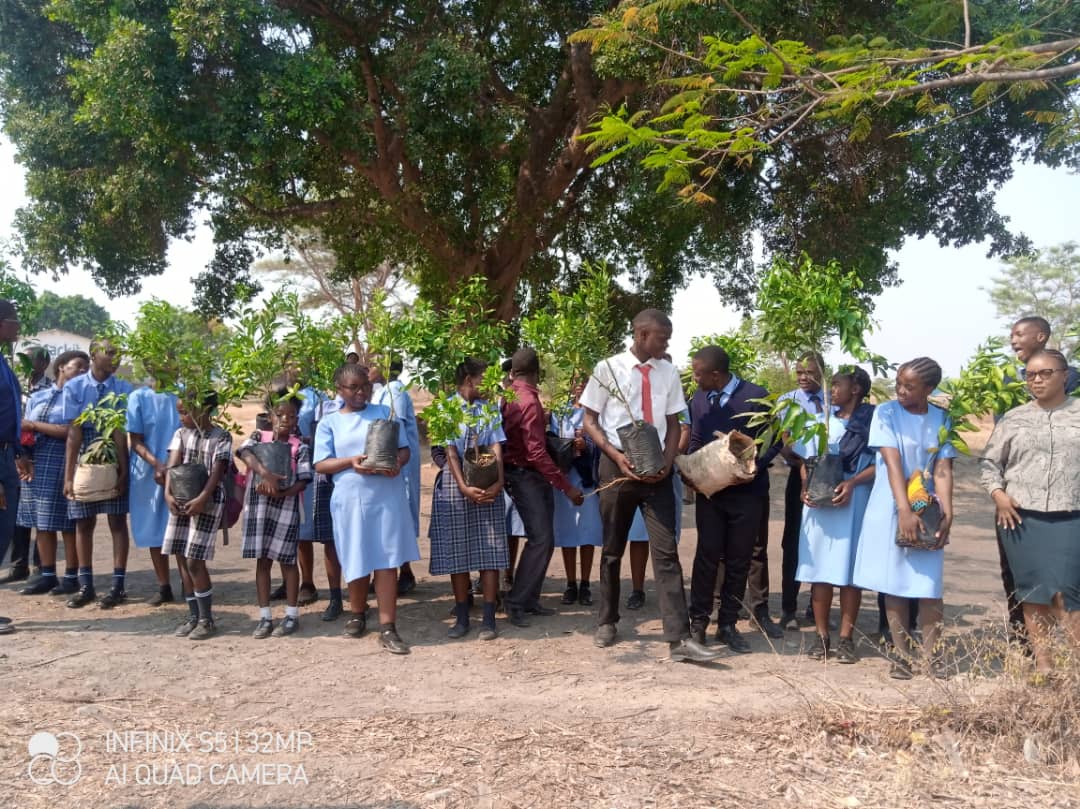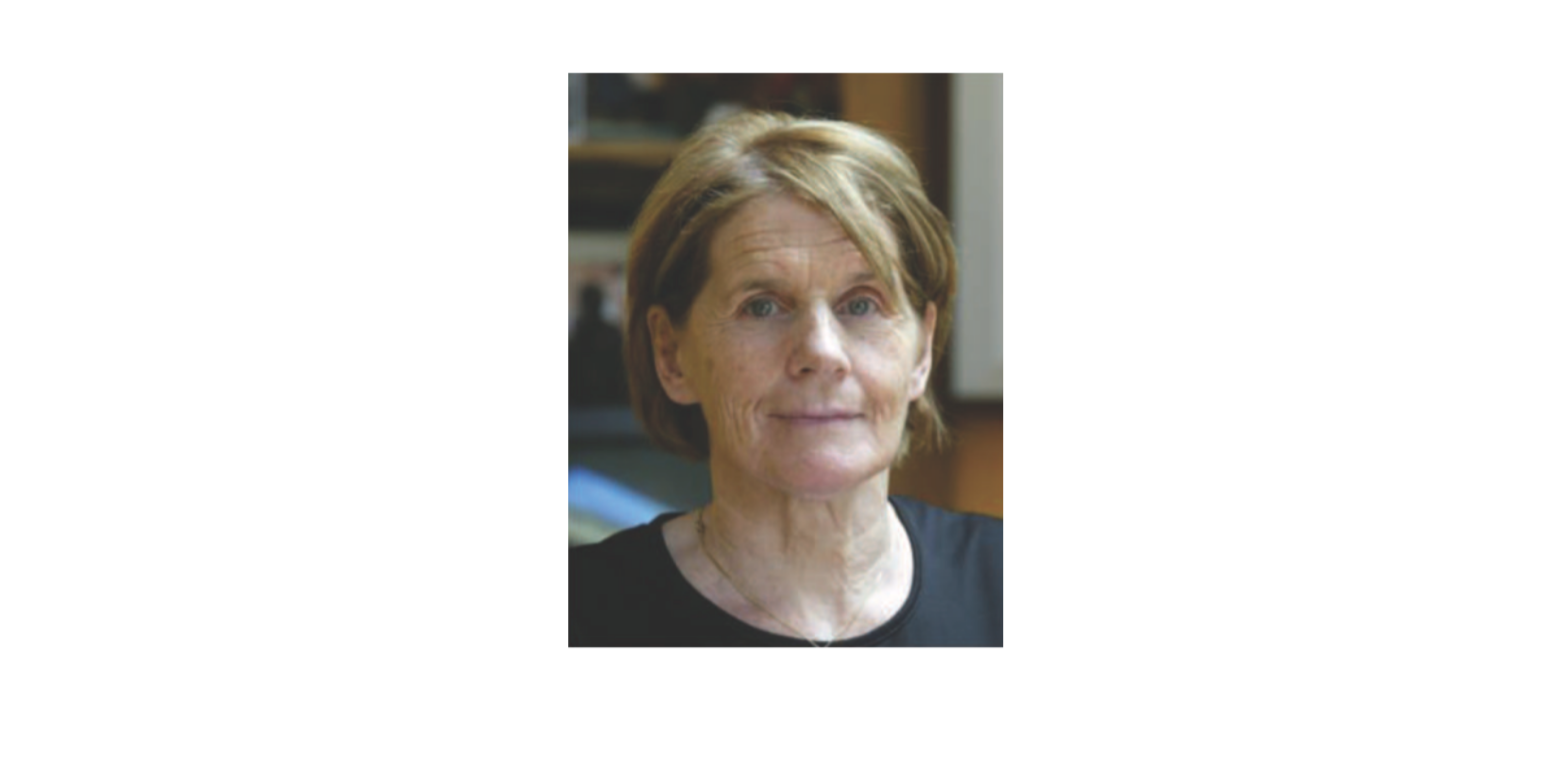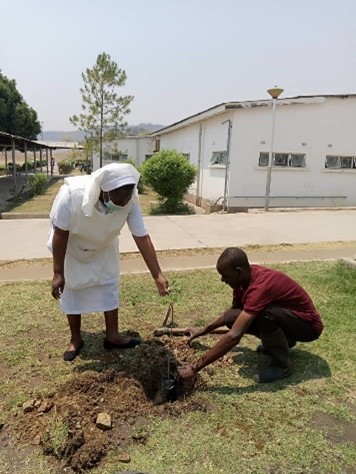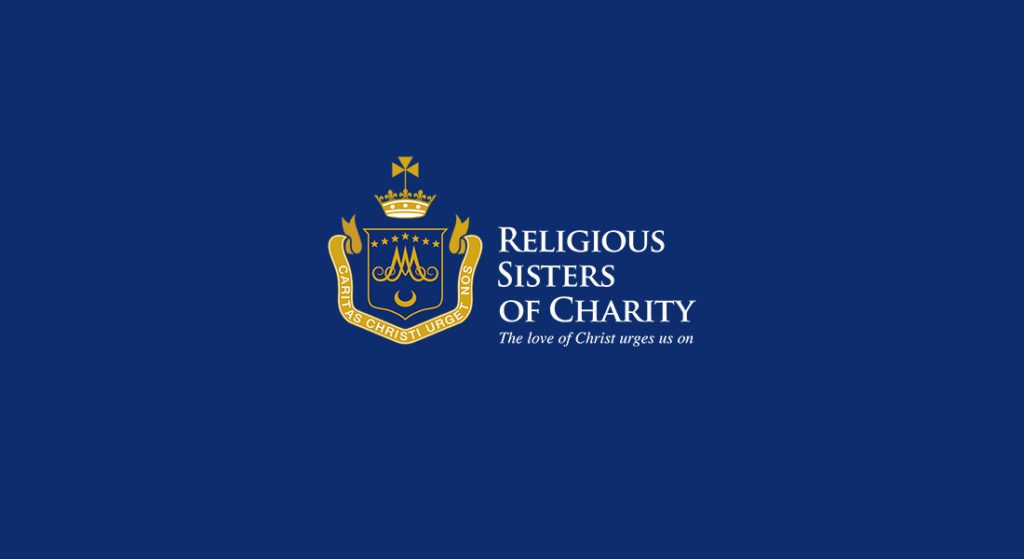
 Fr Donal Dorr is a well-known facilitator, consultant, trainer, resource-person and author. For many years he devoted himself to working with different types of groups and teams, offering training in areas that include empowerment, community-building, and conflict-resolution. Here he recalls his lifelong association with the Sisters of Charity and Foxford Woollen Mills.
Fr Donal Dorr is a well-known facilitator, consultant, trainer, resource-person and author. For many years he devoted himself to working with different types of groups and teams, offering training in areas that include empowerment, community-building, and conflict-resolution. Here he recalls his lifelong association with the Sisters of Charity and Foxford Woollen Mills.
“Almost eighty years ago I was born in the village of Foxford in the West of Ireland. Foxford was quite unique in Ireland because the whole life of the village centred around the famous Providence Woollen Mills which had been founded forty-five years earlier by a remarkable Sister of Charity, Mother Arsenius, or as everybody called her ‘Mother Morrogh-Bernard.’
My mother was a nurse from Limerick who had come to Foxford in 1932 to nurse Mother Morrogh-Bernard in her final illness. My father was a local boy who had begun working in the Woollen Mills as a teenager and was then sent off to Scotland by Mother Morrogh-Bernard to learn management and textile design. The Sister arranged a match between the nurse and the factory worker. Some years later, when the Scottish textile designer died rather suddenly, my father was qualified to take over his position.
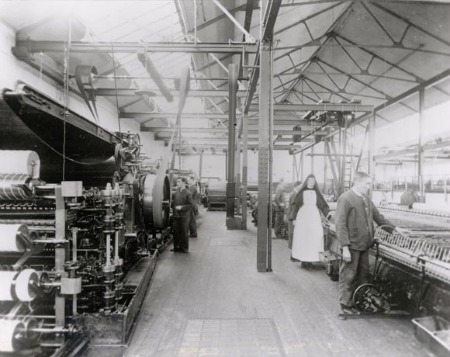 When my father began working in the mills in the early 1900s, the starting time for work was 6.00 a.m. But by the 1930s the working week was from 8.00 a.m. to 6.00 p.m. on Monday to Friday with a half-day on Saturday. At 7.45 the sound of the Mill Buzzer resounded for miles around to remind the 200 workers to get on their bikes and rush to ‘clock in,’ if they hadn’t already done so. In those days the people of the town and much of the surrounding countryside didn’t need a clock or a watch; we had only to step outside the door to see one of the four faces of the Mill clock high over the roof of the mills.
When my father began working in the mills in the early 1900s, the starting time for work was 6.00 a.m. But by the 1930s the working week was from 8.00 a.m. to 6.00 p.m. on Monday to Friday with a half-day on Saturday. At 7.45 the sound of the Mill Buzzer resounded for miles around to remind the 200 workers to get on their bikes and rush to ‘clock in,’ if they hadn’t already done so. In those days the people of the town and much of the surrounding countryside didn’t need a clock or a watch; we had only to step outside the door to see one of the four faces of the Mill clock high over the roof of the mills.
When I was a child the many initiatives of Mother Morrogh-Bernard for the welfare of the village had bourn fruit. We had a talented brass band, a flourishing music school, a spectacular Corpus Christi procession every year, and regular employment for hundreds of local people in this area which previously had been subject to regular famines.
Mother Morrogh-Bernard and her Sisters were women of great faith and great courage, taking after the foundress of the Congregation, Mother Mary Aikenhead. In the early 1900s the Lord Lieutenant, his wife and party visited the Mills, accompanied of course by some soldiers. One kindly army officer said patronizingly to Mother Morrogh-Bernard: ‘Don’t be afraid.’ She looked him in the eye and replied: ‘I am not afraid of anybody, except God.’
During the early years of the Mills the Catholic community in Foxford, as well as in the rest of the country, became bitterly divided over the issue of whether they would still support Parnell after his divorce. On one occasion some of the Mill-workers clashed publicly with the local Parish Priest over this issue. He demanded that Mother Morrogh-Bernard would sack those workers. When she refused to do so he got the bishop of the diocese to back up his demand. She still refused to allow this clerical interference in the running of the Mills. Eventually the clergy had to agree to the face-saving proposal she made: the workers apologized to the parish priest for insulting him, but they were allowed to keep their jobs.
The factory was called ‘Providence Woollen Mills’ because Mother Morrogh-Bernard had no money but relied entirely on Providence in getting it started in its early days. Her trust in God bore fruit when a generous Protestant Orangeman from Northern Ireland came to her aid and provided advice and key workers to enable the factory to be successfully established.
The Sisters continued to trust in Providence. For instance, when the Korean war broke out in 1950, traders and speculators all over the world, thinking that this would lead to a world war, rushed to buy up ‘the wool Futures,’ that is the wool that would be produced in the following year. The result was that the price of wool increased by 500%. When it turned out that there wasn’t a third world was, the price dropped, people postponed their buying woollen goods, knowing that the price would have to fall. So the factory owners were left with huge stocks of wool. Hundreds of factories were put out of business. But the Sisters refused to put their employees out of work by closing the Foxford factory. I remember my father saying that there were thousand of unsold rugs and blankets, as well huge stocks of wool, piling up everywhere in the factory. Eventually, the Sisters trust in Providence was rewarded when the Irish army provided a partial solution by buying up a large number of blankets.
My home was almost across the road from the Convent. During the 1950s, when I was studying to become a missionary priest, I used to go to the convent chapel during the holidays to say my evening prayer. Each evening I heard the Sisters reciting their prayer – and the prayer that sticks out in my mind is the one the Sisters had learned from Mother Morrogh-Bernard: ‘Providence did provide, Providence can provide, Providence will provide.’ That total trust in Providence is perhaps the greatest gift I have received from Mother Morrogh-Bernard and the Religious Sister of Charity.”


